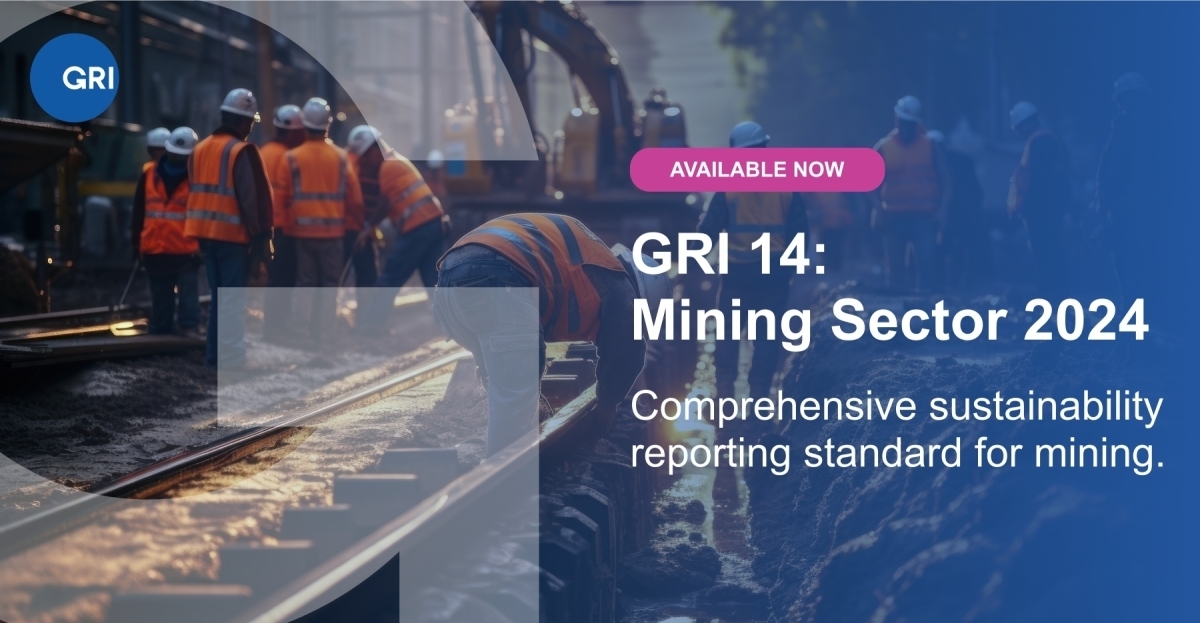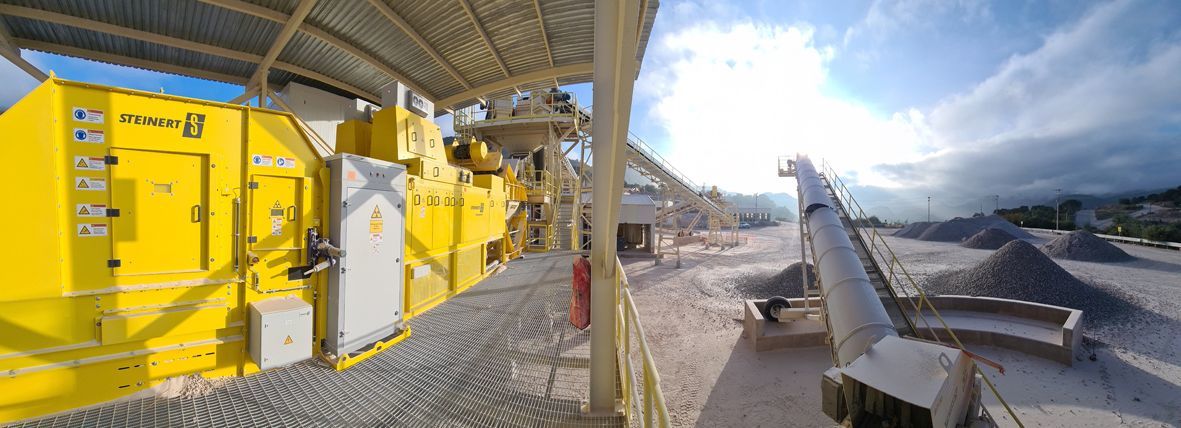Sustainability standard to accelerate accountability in the mining sector
15.02.2024A first global standard to holistically address the sustainability impacts of the mining sector is now available. The new GRI Standard reflects broad stakeholder demands for transparency and enables any mining company to use a common set of metrics to report their impacts.
GRI 14: Mining Sector 2024 will illuminate how mining organizations are balancing two conflicting truths: the essential nature of their role in providing the minerals that modern societies rely on; and the need for accountability on the harm their operations can cause to the environment, communities and workers.
 © GRI
© GRI
The fourth addition to GRI’s Sector Standard series, the Mining Standard was developed with a robust multi-stakeholder approach at its core and focuses on the significant impacts of the mining sector. Addressing 25 topics that are likely material for companies in the sector, GRI 14:
- Sets expectations for site-level transparency that reflect local impacts, to help stakeholders assess impacts and risks by location and specific minerals.
- Covers critical themes that range from emissions to waste, human rights to land and resource rights, climate change to biodiversity, anti-corruption to community engagement.
- Introduces three topics not previously addressed by GRI yet are of specific relevance to mining firms: tailings management, artisanal and small-scale mining, and operating in conflict zones.
 Carol Adams, Chair of GRI’s Global Sustainability Standards Board (GSSB)
Carol Adams, Chair of GRI’s Global Sustainability Standards Board (GSSB)
© GRI
Carol Adams, Chair of GRI’s Global Sustainability Standards Board (GSSB) said: “From a sustainability standpoint, the position of mining is complex, in that it is both part of the solution and the problem. The low-carbon transition cannot be realized without key minerals that the sector provides – yet mining operations can have deep and damaging impacts on both nature and people. We need detailed, consistent and globally comparable reporting on the most significant impacts of mining companies, which this new GRI Standard will deliver. Importantly, it will help mining organizations to improve how they communicate with key stakeholders on the issues that matter most to build trust with communities.”
GRI 14 publishes at a crucial time as policymakers and regulators increasingly focus on the responsible supply of minerals, with multiple stakeholder groups scrutinizing the impacts of the sector. The Standard will support mining companies to meet these widespread disclosure and due diligence needs, including to provide investors and downstream customers with information to make informed investment and sourcing decisions.
Mark Robinson, Executive Director, Extractive Industries Transparency Initiative (EITI) said: “The energy transition brings risks and opportunities for the mining sector in equal measure. Without transparency, the sector will lack the means to respond to a changing landscape in a way that enables citizens to benefit fully from their resources. The EITI welcomes the GRI’s revised Mining Sector Standard and encourages EITI implementing countries and other stakeholders to draw on company disclosures to use it to streamline their own reporting and identify opportunities for data use.”
K.C. Michaels, Legal Counsel, International Energy Agency (IEA) said: “The GRI Mining Sector Standard strikes a balance between promoting sustainability and addressing industry challenges. It requires companies to report on key areas like biodiversity, water usage, community impact, corruption and emissions, aligning with the IEA's recommendations on sustainable and responsible supply chains. Such disclosures are crucial for monitoring industry performance, fostering a people-centred energy transition and enhancing industry accountability in line with global objectives.”
Suneeta Kaimal, President and CEO, Natural Resource Governance Institute (NRGI) said: “With the energy transition set to boost demand for transition minerals, the new GRI Mining Standard is a timely contribution to the fast evolving sustainability landscape. Critically, by emphasizing mine-site reporting for many topics ranging from GHG emissions to economic impacts, the Standard promises to enable local communities directly affected by mining to engage in sustainability debates. This can help support a future that is both just and equitable.”
Pierre Petit-De Pasquale, Standards Director, Initiative for Responsible Mining Assurance (IRMA) said: "IRMA welcomes the new GRI Mining Standard, which addresses important mining-specific risks and impacts such as the rights of local communities and Indigenous Peoples, access to land, occupational health and safety, tailings, and closure and rehabilitation. Reporting standards such as GRI complement independent site-level sustainability assurance programs to prevent harm and manage risks. IRMA and GRI remain committed to maximize complementarities between our systems and develop synergies to advance transparency and accountability in the sector."
Glen Mpufane, Director of Mining, IndustriALL Global Union, said: “IndustriALL welcomes the launch of the GRI Mining Standard. While we recognize it is not a performance standard but a reporting standard, workers and communities can still hold mining companies accountable using GRI 14, to the extent that the company reports according to it. This GRI Sector Standard was developed through a robust multi-stakeholder process, thereby enhancing its credibility among workers and communities.”


